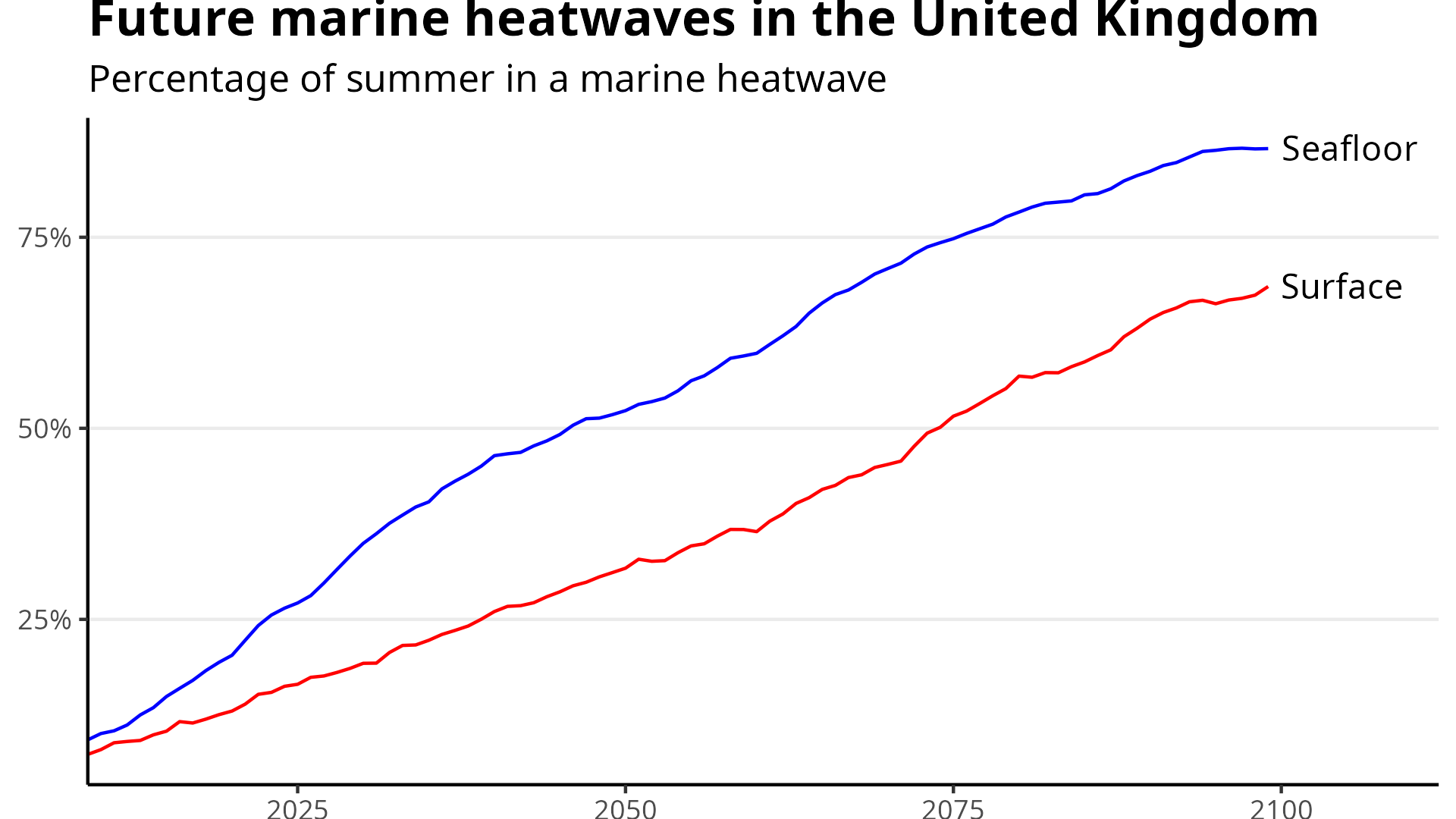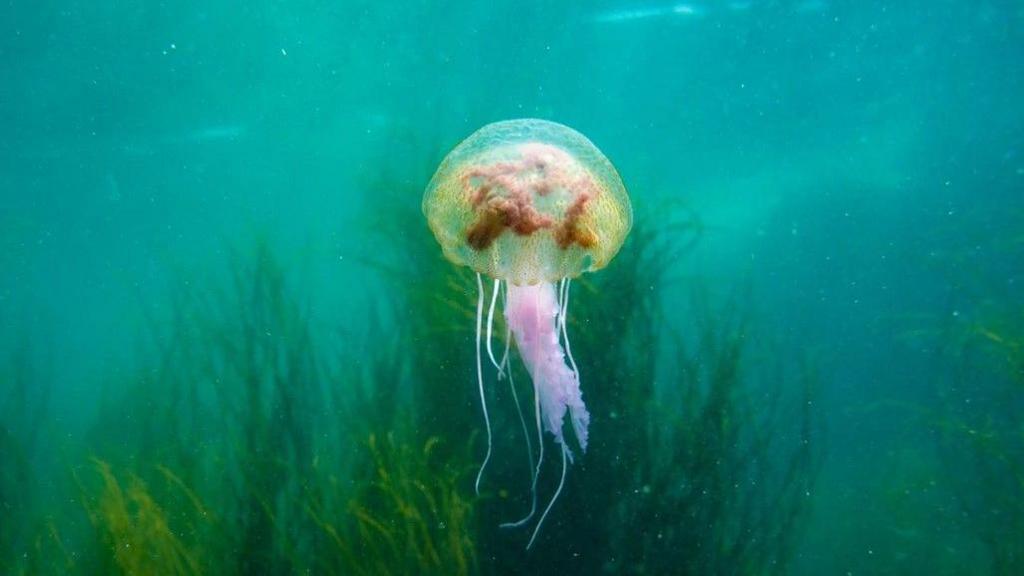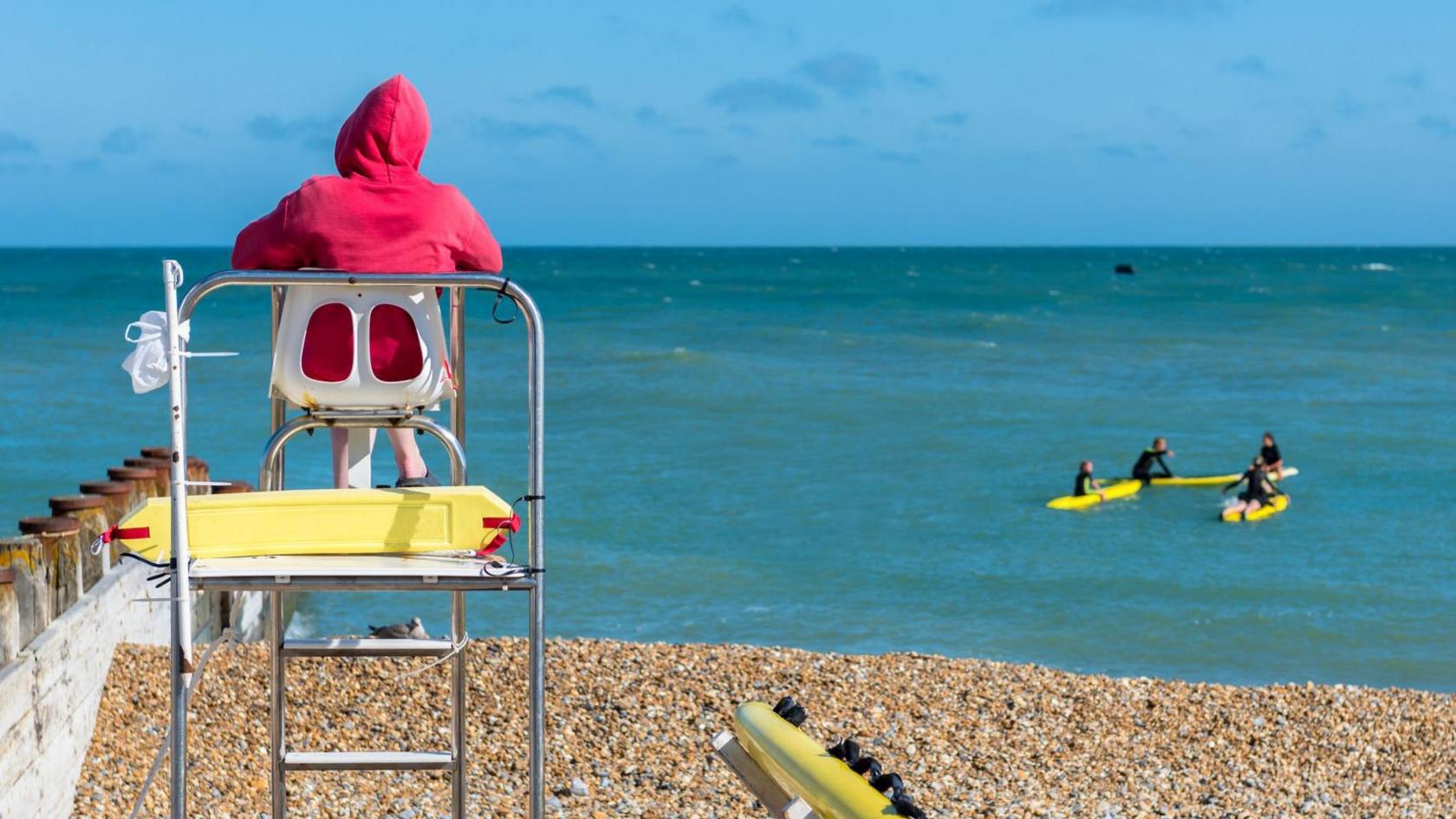Rising seafloor temperatures risk to marine life

- Published
Rising seafloor temperatures could have a negative impact on marine life, an expert has said.
A new study has revealed marine heatwaves on the seafloor could be more than 50% more frequent in future than at the surface of the ocean during hot summer months.
The study, by the Plymouth Marine Laboratory (PML), described the findings as a "concerning prospect" for bottom-dwelling species which would not be able to escape rising temperatures.
Dr Robert Wilson, lead scientist for the PML study, said a marine heatwave was a period where there were "very extreme temperatures".

Dr Wilson said at the end of the century, marine heatwaves could become permanent
He said: "We are still working out the consequences of marine heatwaves.
"Some organisms are right on the edge in terms of how much they can take.
"Some may be from the Arctic Seas down to somewhere like Plymouth or Cornwall and that is as far south they go.
"Any increase in temperature for those species can potentially kill them."

Dr Wilson said marine heatwaves could become permanent at the end of the century
Dr Wilson said at the end of the century, marine heatwaves could become permanent.
He said it could result in the disappearance of species and seaweed around Devon and Cornwall.
Dr Wilson said a way to tackle the issue would be to stop the emission of greenhouse gases.
He also said the recent invasion of octopus could be linked to recent marine heatwaves.
"What's happened in the English Channel is that we have been in a constant marine heatwave conditions for the last two years," he added.
"That is more or less the best conditions that have ever existed for octopus.
"I think we are now we are seeing the impacts of marine heatwaves in that case."
Dr Wilson said until the study, scientists had predicted future marine heatwave rates based on the surface of the sea.
"We have shown that this can be highly misleading for critical European seafloor ecosystems, where climate change will cause more frequent extreme temperatures than at the sea surface," he said.
"It is therefore critical that marine heatwave monitoring and assessment move beyond the surface and shift to a 3D view of the ocean."
Follow BBC Cornwall on X, external, Facebook, external and Instagram, external. Follow BBC Devon on X, external, Facebook, external and Instagram, external. Send your story ideas to spotlight@bbc.co.uk, external.
- Published7 June

- Published20 May

- Published22 May
